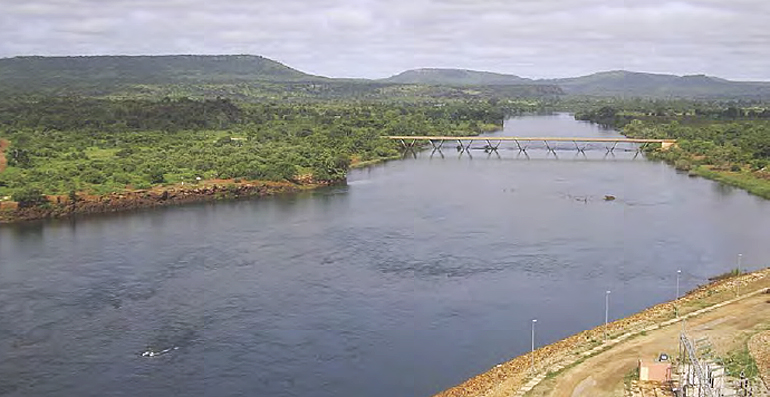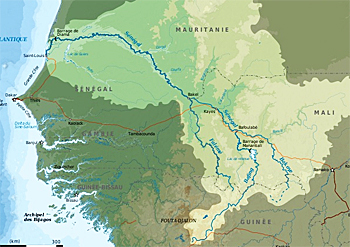Green infrastructure to fight increasing water scarcity in Senegal river basin
 Wetlands International is joining forces with the Senegal River Basin Authority to identify the many important services that wetlands provide to people and nature in the Senegal River Basin.
Wetlands International is joining forces with the Senegal River Basin Authority to identify the many important services that wetlands provide to people and nature in the Senegal River Basin.
In order to meet the growing water needs in the increasingly arid Sahel of West Africa, this partnership will identify how natural 'green' infrastructure wetlands including seasonal floodplains, swamps and lakes can be used to support more sustainable livelihoods for people in the four countries of the basin (Guinea, Mali, Mauritania and Senegal) while adapting to climate change and protecting nature.
Following an inter-sectoral stakeholder dialogue on water, wetlands and development, Wetlands International and the Senegal River Basin Authority – known as the Organisation pour la Mise en Valeur du fleuve Senegal (OMVS), agreed to cooperate on ‘green’ infrastructure.
Identify ecosystem services
Wetlands International will help OMVS to bring together a knowledge base to identify the many ecosystem services wetlands provide in the basin (see below for more detail on ecosystem services). OMVS will utilise its expertise to map where these values exist in the basin.
Urgency to act
Wetlands International brought a team of global experts from the business sector, universities and governments, highlighting the international significance of these issues.
The Mayor of Saint Louis made an impassioned plea for more assistance to restore the mangroves in the estuary to protect the city from floods and salt water intrusion.
The president of a Rural Council from an affected area near the Ndiael Reserve cited problems of access to fresh water for drinking and farming and increasing water-related diseases.
There were also calls for the development of “green businesses” for example harvesting the invasive aquatic plant Typha to make saleable products or energy.
Improving water allocation decisions Competition for water, diversions and a reliance on built infrastructure such as dams is currently degrading wetlands in the Basin. Some formerly productive wetlands have dried out entirely, while others suffer from management decisions that fail to consider their true value.
Competition for water, diversions and a reliance on built infrastructure such as dams is currently degrading wetlands in the Basin. Some formerly productive wetlands have dried out entirely, while others suffer from management decisions that fail to consider their true value.
The impact of the Diama dam on the river delta and specifically the Djoudj National Park is illustrative of the challenges. Located 27 kilometres upstream of Saint Louis, the dam was built in 1988 and has cut off the saltwater flow while raising freshwater levels upstream, with the aim of making the river navigable, improving agricultural potential and securing drinking water.
In the Ndiael Reserve the plan to produce biofuels within the outer buffer zone – especially without assessing the environmental impacts in the Basin – also raises significant concerns for the livelihoods of the 32 communities living around it.
Pooling public and private human and financial resources
On the occasion of visiting the Senegal river delta, Jane Madgwick, CEO Wetlands International wrote on her weblog: "Projects could be developed based on this that bring life back to the wetlands and share water resources more fairly. Private sector companies that benefit from or impact wetlands could be invited to contribute to the solutions. We agreed to pool human and financial resources to do this mapping as a first step in our partnership. Different stakeholders would be involved in the process. If promoted by the governments, development aid could be attracted to restore wetlands as “natural infrastructure” across the landscape on a grand scale – before it’s too late!"
This news item was originally published on the website of Wetlands International.
More information
Wetlands International
Wagenignen, the Netherlands
+31 318-660910
www.wetlands.org



